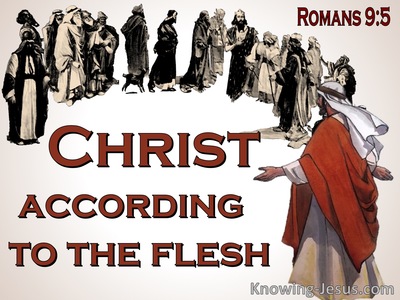◄ What Does Matthew 5:3 Mean? ►
"Blessed are the poor in spirit, for theirs is the kingdom of heaven.
Matthew 5:3(NASB)
Verse of the Day
God had promised Israel a Messiah Who would destroy their enemies and set up an earthly kingdom of peace and prosperity in the land that He gave to Abraham, Isaac, and Jacob. This knowledge permeated Old Testament Scriptures, and when the prophetic voice of John the Baptist announced the arrival of their long-awaited King, and called the errant nation to repentance, a wave of excitement swept the land.
News about Jesus spread abroad. They brought all who were ill and suffering to Him and He healed them all. Large crowds followed Him from Galilee, the Decapolis, Jerusalem, Judea and from beyond the Jordan. Jesus was hailed as their long awaited Messiah and the expectation was that He would bless those that were poor in spirit, feed the hungry, heal the sick, comfort the afflicted, defeat their hated enemies, and set up the prophesied heavenly kingdom of peace and prosperity. But most were more interested in outward physical blessings which are temporal, than the inward spiritual blessings which are eternal.
And so at this high point of His popularity, Jesus as the King of Israel, laid down God's required standard of spiritual purity to the people of Israel; an ideal that is only found in a repentant heart that is in right relationship with God. Jesus listed the inner qualities of purity, mercy, gentleness, and grace, which conflicted so starkly with the outward facade of self-righteousness displayed by their religious leaders: "And Jesus opened His mouth and taught His disciples saying: blessed are the poor in spirit, for theirs is the kingdom of heaven."
Jesus did not present the way of salvation in His Sermon on the Mount, but described the required conduct of a person that is in a right relationship with God. The very heart of the nation needed to change its perspective, from being selfishly self-focused to becoming graciously God-focused.
The Pharisees taught a self-righteousness that depended on external factors, where strict adherence to rules and regulations determined a false righteousness based on human standards, which was and always will be, unacceptable to God. But Christ taught of a godly righteousness that depended on an inner purity of heart and humility of spirit; a heart that is in a right relationship with God. But godly righteousness requires a correct and honest attitude towards oneself that we are sinners in need of a Saviour, that we are incapable of pleasing God through our own attempts but need to be empowered by Him to live a life that is pleasing to the Father.
Although this teaching was directed towards the people of Israel who as a nation needed to repent of their spiritual apostasy and return to the road of godly righteousness, and although this will be the standard that Israel will achieve during the millennial reign of Christ as Israel's promised King, it is equally important for those of us in the Church today who have trusted Christ for salvation, to recognise that it is not by works of self-righteousness that such godly standards can be achieved, but by a willing submission to the inner workings of the Holy Spirit Who by grace corrects us and conforms us into the image and likeness of Christ as we submit to His leading.
And this is only possible in the life of a believer, who by faith will walk in spirit, truth, and humility of heart, not having a righteousness of our own, which is derived from the Law, but that which is through faith in Christ; the righteousness which comes from God, on the basis of faith.
My Prayer
Heavenly Father, thank You for Your Word of truth and the lessons that it teaches all Your children. Help me to walk by faith in Christ and not to depend on my own human merit. Keep me from pride. Give me a heart that is humble in spirit and lead me in the path of godly righteousness and truth. In Jesus’ name I pray, AMEN.
Choose a Verse from Matthew 5
Matthew 5:3 Further Study
- Matthew 5:3 in the Parallel Bible
- Matthew 5:3 in the Thematic Bible
- Matthew 5:3 Cross References
- Matthew 5:3 Treasury of Scripture Knowing
- Matthew 5:3 Sermons
- Matthew 5:3 Prayers
- Matthew 5:3 Images
- Matthew 5:3 Devotionals
- Choose Chapter
Never miss a post
















